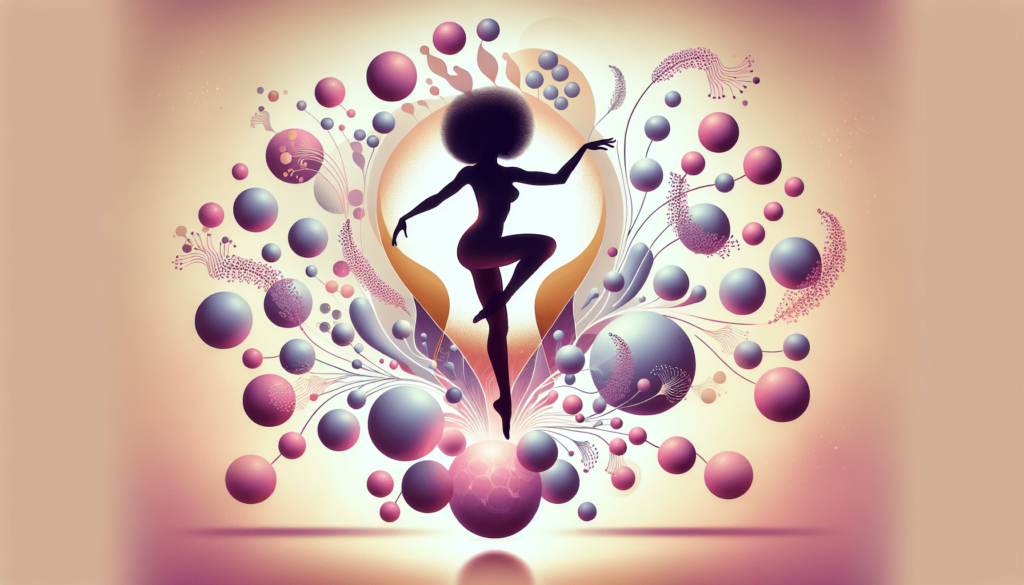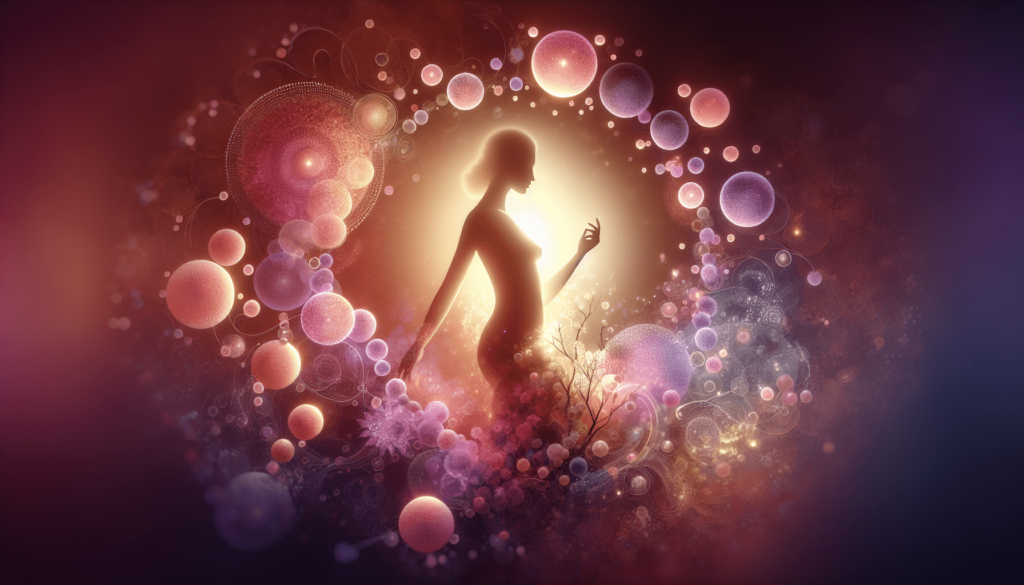Have you ever wondered how your body orchestrates the complex symphony of femininity? It’s fascinating how hormones, those unseen but powerful chemical messengers, play an essential role in shaping what it means to be feminine. Understanding this often mysterious part of human biology can provide valuable insights not only into your own body but also into health and wellness overall. Let’s unpack the science behind hormones and femininity, demystifying how these tiny substances contribute to individuality and identity.
What Are Hormones?
To better understand their role in femininity, you first need to grasp what hormones actually are. Hormones are chemical messengers produced by glands in the endocrine system. They travel through your bloodstream to tissues and organs, orchestrating a variety of functions crucial for your daily life and long-term health.
The Endocrine System: Your Body’s Communication Network
Table of Contents
Imagine the endocrine system as a vast communication network; each gland is a different station sending out signals that influence how you feel, act, and even think. These glands include the thyroid, pancreas, and adrenal glands, among others. Each one produces specific hormones that target particular cells.
Hormonal Balance: The Delicate Equilibrium
Hormone levels fluctuate naturally, but they usually stay within a range that keeps your body running smoothly. When something goes awry—whether it’s during puberty, pregnancy, or menopause—your body sends signals to adjust hormone production accordingly. This perpetual balancing act is what keeps you healthy and responsive to your environment.
The Primary Hormones Involved in Femininity
Several key hormones come into play when discussing femininity, each with its own unique role and impact on your body.
Estrogen: The Quintessential Female Hormone
Estrogen is perhaps the most well-known “female” hormone, although males produce it too, albeit in smaller amounts. It is crucial for the development of female secondary sexual characteristics, such as breast growth and the regulation of the menstrual cycle.
The Role of Progesterone
While estrogen gets a lot of the attention, progesterone is equally important. It prepares the uterus for pregnancy after ovulation and regulates the menstrual cycle. Without it, your body would struggle to maintain a potential pregnancy.
Luteinizing Hormone (LH) and Follicle-Stimulating Hormone (FSH)
Produced in the pituitary gland, these two hormones play a big role in controlling the menstrual cycle and stimulating the ovaries. LH triggers ovulation, while FSH stimulates the growth of ovarian follicles.
Testosterone: Yes, Women Have It Too
Testosterone is often associated with masculinity, but it’s important for women as well. It contributes to muscle mass, bone density, and libido. The balance between estrogen and testosterone is what helps maintain femininity.

How Do These Hormones Work Together?
You could think of your hormones like an ensemble cast in a film, each playing a role that contributes to the overall story. These hormones need to work harmoniously to keep you feeling well and maintaining your biological rhythms.
The Menstrual Cycle: A Hormonal Symphony
The menstrual cycle is perhaps the most vivid example of hormones at work. It’s a complex process regulated primarily by estrogen and progesterone but also heavily influenced by LH and FSH. Your cycle can easily be disrupted if even one of these hormones is out of balance.
Pregnancy and Post-Partum: Peaks and Valleys
Pregnancy is a period of intense hormonal activity. Estrogen and progesterone levels soar, creating a nurturing environment for the developing fetus. After birth, these hormones plummet, which can lead to situations like post-partum depression if not carefully managed.
Hormonal Imbalances and Their Impact
Sometimes, things don’t go as smoothly as they should. Hormonal imbalances can significantly impact your physical health and emotional wellbeing.
Symptoms of Hormonal Imbalance in Women
Do you find yourself unusually fatigued, moody, or gaining weight without clear reasons? Such symptoms may indicate a hormonal imbalance. Each hormone performs specific roles, and when they aren’t in harmony, the effects can be felt throughout the body.
Common Conditions Related to Hormonal Imbalance
- Polycystic Ovary Syndrome (PCOS): Characterized by elevated levels of androgens, causing irregular periods, weight gain, and sometimes infertility.
- Thyroid Disorders: Hypothyroidism and hyperthyroidism disrupt your metabolism, affecting weight, mood, and energy levels.
- Menstrual Irregularities: Unexplained changes in your cycle could signal a hormone-related issue.
Diagnosis and Treatment
Usually, hormonal imbalances are diagnosed via blood tests that measure hormone levels. Treatment might include dietary changes, lifestyle modifications, and possibly hormone replacement therapy depending on the severity and type of imbalance.

The Influence of Lifestyle on Hormones
The good news is that you have some control over your hormonal health. Lifestyle choices play a crucial role in maintaining or disrupting equilibrium.
Diet and Nutrition: Fueling Hormonal Harmony
Eating a balanced diet rich in whole foods, vitamins, and minerals is essential for hormone production. Foods like leafy greens, fatty fish, and nuts contain vital nutrients that support hormonal health.
Exercise: The Natural Hormone Booster
Regular physical activity can work wonders for hormone balance. Exercise reduces stress hormones and triggers the release of endorphins, which elevate mood and combat stress. Aim for consistent, balanced routines rather than extreme, sporadic sessions.
Stress Management: Keeping Cortisol in Check
Chronic stress can lead to elevated cortisol levels, which interfere with other hormonal systems. Practices such as yoga, meditation, and adequate sleep are crucial for keeping stress in check and maintaining a healthy hormone balance.
The Future of Hormonal Research
Exploring the science of hormones is like opening a book with endless pages, each revealing more about our bodies and minds. Research continues to evolve, promising more targeted, effective treatments for hormonal imbalances.
Personalized Medicine: The Next Step
With advancements in genetic research, we’re moving toward more personalized approaches to hormonal health. Understanding your genetic makeup might soon guide specific dietary and lifestyle recommendations for optimal hormonal balance.
Hormone Therapy: The Latest Innovations
Researchers are exploring new forms of hormone replacement therapy with fewer side effects, providing more options for those in need of treatment for imbalances or deficiencies.
Conclusion
Understanding the role of hormones in femininity doesn’t just illuminate the interplay of chemicals in your body; it enriches your understanding of yourself. This awareness empowers you with tools to manage your health proactively. While hormones are often blamed for enigmatic mood swings or sudden weight gain, they are more than scapegoats; they are vital to your identity and wellbeing. As research advances and insights deepen, your ability to manage and optimize hormonal health empowers you to script a vibrant, balanced life narrative. So, what will your next chapter be in the dance of hormones and femininity?





